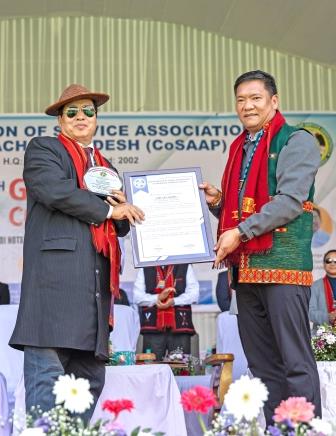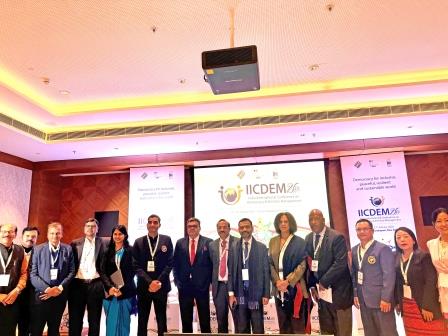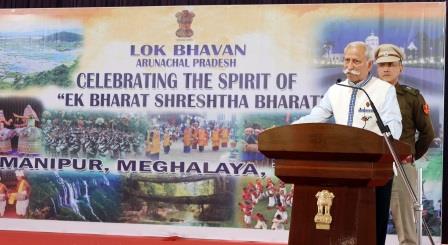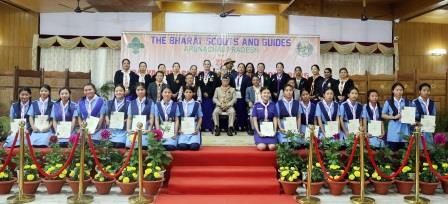-
 NPS concerns genuine, needs careful consideration: CM Khandu
NPS concerns genuine, needs careful consideration: CM Khandu
-
Women-run kitchens showcase local cuisine
-
 Team Arunachal Pradesh participates in IICDEM 2026; leads thematic…
Team Arunachal Pradesh participates in IICDEM 2026; leads thematic…
-
24hr bandh hits normal life in Lower Subansiri
-
 Lok Bhavan celebrates State Foundation Day
Lok Bhavan celebrates State Foundation Day
-
 Arunachal Yuva Samanvay 2026 underway in Namsai
Arunachal Yuva Samanvay 2026 underway in Namsai
-
DA conducts Keyi Panyor Suvidha outreach campaign
-
 Governor confers BSG Rajya Puraskar
Governor confers BSG Rajya Puraskar
-
Pongte stresses use of technology in law-making
-
 Vintage Jeep & Bike Rally commemorates end of World War-II
Vintage Jeep & Bike Rally commemorates end of World War-II
In a befitting tribute to the nation on its 75th Independence Day, the Centre asked the states and union territories to ensure that people don't use celebratory plastic national flags as disposing them is a problem. Just imagine the occasions of important national events, sports or cultural where national flags made of plastic are used by citizens and dumped soon after.
On 1st October 2019, Prime minister Narendra Modi had called to end single-use plastic in the country by 2022. The pledge is the most ambitious yet of the global actions to combat plastic pollution that are taking place in 60 nations around the world.
The entire world is facing a gargantuan plastic wastes problem with long-term environmental consequences. Leading studies reveal that the growing plastic pollution, in particular, 50 percent of the single-use plastic products that end up in the oceans have been killing marine life and entering the human food chain. Despite efforts and tall claims, only a small fraction of plastic wastes are recycled. Most plastic wastes are just dumped around carelessly.
The Centre has banned single-use plastic beginning 1st July 2022. The Environment Ministry a few days back released a draft gazette notification that announced the ban and spelt out for the first time the items would fall under its purview — cutlery, earbuds and ice cream sticks, among others. Polythene bags with thickness less than 50 microns are already banned in the country.
Arunachal especially capital Itanagar despite its comparatively smaller population has proved terrible at handling its daily plastic waste problem. With no scientific method for waste disposal, overflowing garbage bins are sporadically collected and dumped along a mountainside on the outskirts of the city. Recycling is simply out of the question.
Therefore, the only way out is to eliminate or reduce the amount of single use plastic in circulation. The effectiveness of the ban will largely rely on its implementation at the ground which comes down to a proactive government and administration. The government must ensure that people follow the laid down rules while companies who are producing alternative products are given the support.
Plastic waste is turning out to be the biggest man-made disaster, unless strong corrective measures are taken right now.

Kenter Joya Riba
(Managing Editor)She is a graduate in Science with post graduation in Sociology from University of Pune. She has been in the media industry for nearly a decade. Before turning to print business, she has been associated with radio and television.
Email: kenterjoyaz@easternsentinel.in / editoreasternsentinel@gmail.com
Phone: 0360-2212313

